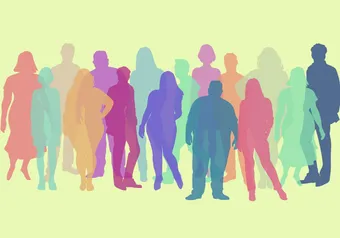Many are familiar with the racing heart and sweaty palms that can come with public speaking. A 2012 study even found that public speaking was selected by college students as a common fear more often than anything else, including death. This anxiety and the emergence of AI has inspired professors at the UBC Peter A. Allard School of Law to create a courtroom simulation, aimed to help first-year law students learn courtroom speaking skills.
Jon Festinger, an adjunct UBC law professor, was inspired by virtual reality exposure therapy treatments used to treat patients suffering from trauma. Working with Nikos Harris, an associate professor of teaching at Allard Law, and a team from UBC’s Emerging Media Lab, the Judicial Interrogatory Simulator (JIS) was created.
Moot court, or mooting, is a training activity that imitates real courts to give students the opportunity to practice presenting their arguments and responding to the judge’s questions. For many law students, this can be a nerve wracking first experience, one Festinger recalled initially fearing during his time as a law student.
“I thought, well that’s a form of trauma … What if we did some things through technology to allow students to have exposure to the moot before they actually do the actual moot?” said Festinger.
The JIS is a virtual reality courtroom environment, with avatar judges that engage students with case-specific questions. The simulation has two versions: classic and Intellajudge. Classic version is an algorithmic early model where the judge asks a series of standard questions written by Harris. Intellajudge is a newer AI model that is able to process students’ arguments and formulates tailored responses and questions in real time.
“The primary goal of this was to reduce the trauma. The secondary effect is … to engage students and encourage them to practice, and if they practice, they're going to do a better job on their moot and feel better about law school and like the experience more,” said Festinger.
Not only does the JIS help law students get used to mooting, but the AI’s responses challenge students’ arguments much like a judge would in an actual courtroom.
“Saying what you want to the judge is probably the smallest part of it. The judge will identify what is critical to their decision, and they will ask you a question, and it's the question and answer that is probably the most important part of legal submissions,” said Harris.
“We love that [the JIS is] not telling you what the answer is. It's helping you further understand your argument and to think about your argument more by asking you questions.”
The JIS was also developed to help immerse students in a realistic experience, including details such as gestures for the judges like nodding and drinking water.
The JIS’s new Intellajudge version is currently being introduced to first-year law students, but was previously tested out by the Allard Law faculty, receiving an overwhelmingly positive response. The project was even a finalist in the 2024 Gartner Eye of Innovation Awards for Education.
When asked about the future steps for the project, Harris and Festinger expressed an interest to try out a variety of updates, such as giving the judges responsive facial features and different personalities.
“When you're in front of a human judge … you can read the judge, you can get a feeling from the judge. Are they with you or not with you?" said Festinger. "There is body language. There are cues. And right now, our AI is just a positive genteel AI, but it doesn't really give any responsive indication of whether it's with you or not.”
Harris and Festinger are looking to bring the JIS to people beyond students at Allard Law, specifically to those who are unable to access legal services.
“There really is a crisis in terms of access to justice. Lawyers are extremely expensive, so a lot of litigants are increasingly self represented, and they're walking into court without any preparation,” said Festinger.
“So if this is a tool that can help prepare law students for the court experience, it's not that hard … to make it potentially usable for self litigants, for people acting on their own behalf without a lawyer and hopefully make things a little easier on the court system.”
First online
Share this article








